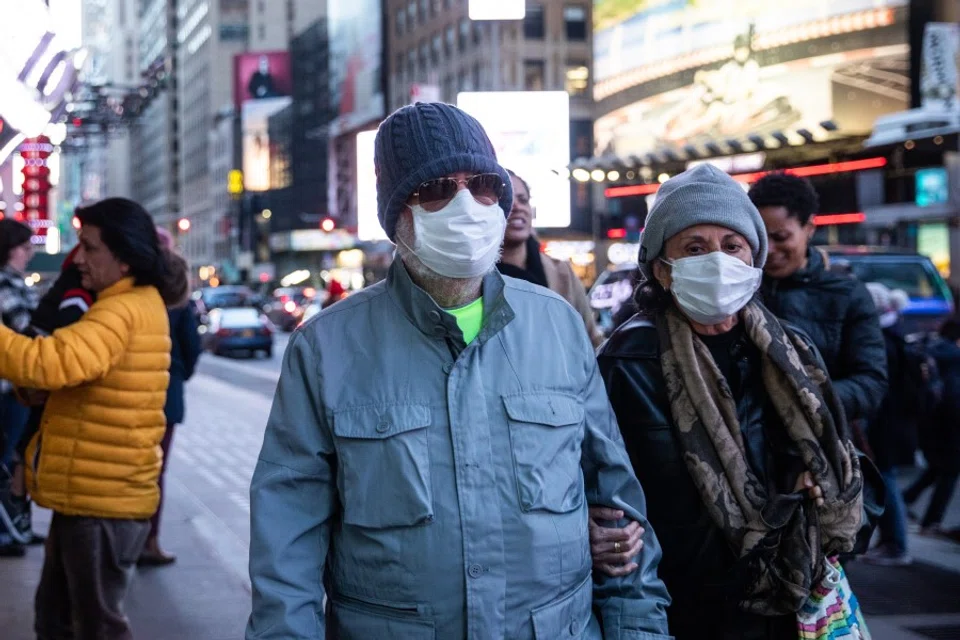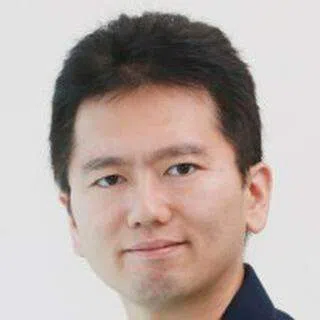China and the US spar over origin of Covid-19
With the Covid-19 epidemic worsening in the US and spreading all over the world, the US has criticised China for covering up the initial outbreak. Chinese Foreign Ministry spokesperson Zhao Lijian also tweeted recently that Covid-19 could have been brought to Wuhan by US troops. Zaobao correspondent Edwin Ong examines the possible considerations behind comments on both sides.

As the Covid-19 epidemic worsens in the US, senior officials are criticising China for covering up information and providing flawed statistics. At least one Chinese academic this reporter interviewed thinks that the US is making China the scapegoat for the outbreak in the US, while countering the recent publicity blitz by China's authorities to play up China's efforts against the epidemic.
China's Ministry of Foreign Affairs called on the US to focus on handling the epidemic and promote cooperation, rather than pushing the blame to China.
Reports by media outlets such as Reuters and Voice of America said US national security adviser Robert O'Brien spoke at conservative think tank The Heritage Foundation on 11 March, criticising China for covering up the initial outbreak in Wuhan, and costing the world community a lead time of two months in limiting the spread of the virus.
O'Brien praised Trump for immediately ordering the evacuation of Americans from Wuhan and stopping flights from China
O'Brien felt if China had not covered up the outbreak and silenced doctors from speaking up, and allowed the team from the US Centers for Disease Control and Prevention to go to the scene, the epidemic could have come under control two months earlier. "We could have dramatically curtailed both what happened in China and what's now happening across the world," he said.

O'Brien also emphasised that the virus did not originate in the US, but in Wuhan. On 6 March, US Secretary of State Mike Pompeo referred to the coronavirus as the Wuhan coronavirus, while in his TV address on 11 March, US President Donald Trump also said the coronavirus spread to the world from China.
In late February, Chinese epidemiologist Zhong Nanshan said the coronavirus may not have originated in China.
O'Brien praised Trump for immediately ordering the evacuation of Americans from Wuhan and stopping flights from China, describing them as "courageous" moves that bought the US six to eight weeks to prepare for the virus. In late January and early February, China's foreign ministry had blasted these US measures as "creating and spreading fear, and setting a bad example".
Geng said it is China's strong action against the epidemic and the sacrifices of its people that have effectively stopped the coronavirus from spreading to other countries and bought valuable time for the international community in combating it.
At a regular press session on 12 March, China's foreign ministry spokesperson Geng Shuang refuted O'Brien's claim that China covered up the outbreak, saying that "the world knows better that China released information in an open and transparent manner" and that China "identified the pathogen in record time and shared the genetic sequence of the virus with WHO and other countries, including the US".

Geng said it is China's strong action against the epidemic and the sacrifices of its people that have effectively stopped the coronavirus from spreading to other countries and bought valuable time for the international community in combating it. He said shifting responsibility for inconsistencies and making baseless allegations is unconstructive and unpopular, and urged the US to spend its time on handling the epidemic and strengthening cooperation, rather than slinging mud and blaming others.
Geng also felt the source of the coronavirus is a scientific question, and China objects to using it as a chance for political mudslinging.
Chinese officials and the general public are also encouraging other countries to replicate China's lockdown and other measures.
On 6 March, Pompeo also blamed China for the US being "behind the curve" in managing the epidemic, criticising China's data as flawed, and claiming that it was "incredibly frustrating" to get information from the Chinese government.
In an interview on 12 March, Associate Professor Li Mingjiang of Nanyang Technological University told Zaobao that the epidemic in the US is getting serious and the government is not doing enough to control it. In addition, hawkish officials like O'Brien taking aim at China "carries some intention of shifting attention... blaming China and making it a scapegoat would also ease domestic criticism of the US government."
Emphasising that the virus was "made in China" is to make China look bad and highlight that China has to take some responsibility for the global spread of the epidemic.
Recently, China's official media has launched an international publicity blitz praising China's epidemic efforts as an example for the world, and setting China up as a leader in global epidemic efforts. To emphasise China's success, Chinese officials and the general public are also encouraging other countries to replicate China's lockdown and other measures.

US may still need medical supplies from China
Prof Li thinks the comments by the US officials are also targeted at China's international publicity, as they do not want China to be played up due to the epidemic. Emphasising that the virus was "made in China" is to make China look bad and highlight that China has to take some responsibility for the global spread of the epidemic.
He said although China and the US have lost a chance to combat the epidemic together, if the epidemic continues to worsen in the US, the US might have to rely on China for medical supplies such as test kits, masks, and medical suits, and so the door to cooperation is not completely shut.
Note:
On 12 March, China's foreign ministry spokesperson Zhao Lijian tweeted that Covid-19 could have been brought to Wuhan by US troops. Zhao tweeted in English and Chinese: "When did patient zero begin in US? How many people are infected? What are the names of the hospitals? It might be US army who brought the epidemic to Wuhan. Be transparent! Make public your data! US owe us an explanation!"
He accompanied his post with a video of Robert Redfield, director of the US Centers for Disease Control and Prevention, saying that some Americans who had seemingly died from influenza later tested positive for the new coronavirus.
According to Reuters, Geng Shuang did not directly comment when asked on the following day whether his colleague Zhao Lijian's comments were consistent with Beijing's official views on the virus. Geng said: "The international community, including the U.S., have different opinions about the origin of the virus."





![[Photos] Fact versus fiction: The portrayal of WWII anti-Japanese martyrs in Taiwan](https://cassette.sphdigital.com.sg/image/thinkchina/3494f8bd481870f7c65b881fd21a3fd733f573f23232376e39c532a2c7593cbc)